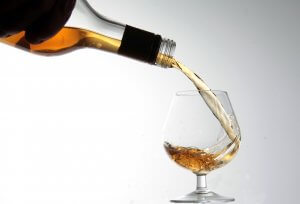What can I substitute for Benedictine liqueur?
Looking for a Benedictine substitute? Did you know you can use Benedictine liqueur in multiple ways. From luxury cocktails, to using it in cooking or baking it can add a unique flavor to your dishes. You can also use it in marinades, or as a glaze for meats and desserts. Experiment with adding small amounts to recipes to incorporate its herbal and sweet profile.
But what do you do if you run out of Benedictine liqueur? Well don’t panic, here is our list of the top 6 substitutes for Benedictine liqueur. Have you had a look at the back of your booze cupboard? Do you have any Brandy, Jagermister, Drambuie, Chartreuse liqueur, Orange Curacao, or Amaretto. Found some? Good. Now read on to learn how to use them as a Benedictine substitute.
What is Benedictine liqueur?
Benedictine liqueur is a herbal liqueur with a long history and a distinct flavor profile. It was first created by a French monk named Dom Bernardo Vincelli in the 16th century at the Benedictine Abbey of Fécamp in Normandy, France. The exact recipe for Benedictine liqueur is a closely guarded secret known only to a select few people.
Benedictine liqueur is made from a blend of various herbs, roots, and spices. The exact ingredients and proportions used in its production are not disclosed, but some of the commonly believed ingredients include angelica, hyssop, juniper, myrrh, saffron, and various other botanicals. These ingredients are carefully selected, macerated, and distilled to create the complex and aromatic liqueur.
The liqueur has a rich amber color and a sweet, herbal taste with notes of honey, citrus, and spices. It has a complex flavor profile that is both sweet and slightly bitter, with a smooth and velvety texture. Enjoy the liqueur on its own as a digestif, served over ice, or used as an ingredient in cocktails such as the classic Vieux Carré.
Benedictine liqueur is enjoyed worldwide and is known for its unique taste and historical significance. It is also regarded as a premium liqueur and is enjoyed by those who appreciate the art of herbal spirits.
Okay, before we look at your Benedictine liqueur substitute options, let’s deal with that empty cupboard situation!
Where can I buy Benedictine liqueur?
If you want to be more prepared and ensure you don’t run out of Benedictine liqueur, you should stock up now.
Nowadays most alcohol retailers and liquor stores stock a wide range of Benedictine liqueurs. Or if you prefer you can also purchase Benedictine liqueur on-line.
So why not jump on and place your order today.
STOCK UP NOW!
Enjoy the flavor of these cocktail herbal bitters.
This is non-GMO & gluten-free and made with no added sugar. Contains 45% ABV.
What can I substitute for Benedictine liqueur?
Here are some of the best drinks to substitute the flavor that Benedictine liqueur provides in your recipes.
- Brandy
- Jagermister
- Drambuie
- Chartreuse liqueur
- Orange Curacao
- Amaretto
Benedictine liqueur substitute
Brandy as a substitute for Benedictine liqueur
Brandy can be used as a substitute for Benedictine in certain applications. However depending on the age and brand, there may be significant changes in the flavor profile of the drink or recipe. Brandy is a spirit distilled from fermented fruit juice, typically made from grapes. This gives it a rich and fruity character that can add depth and complexity to cocktails and recipes. Here are some ways to use brandy as a substitute for Benedictine:
- Use Brandy as a replacement for Benedictine in cocktails that benefit from its fruitiness and depth. For example, in a Vieux Carré cocktail, you can substitute Benedictine with an equal amount of brandy to add a different flavor dimension.
- Brandy can be enjoyed neat or over ice to appreciate its unique flavors. Sip it slowly to experience its fruit notes and warming character.
- Brandy can be a wonderful companion to desserts. You can drizzle it over fruits, use it to macerate berries, or also you can incorporate it into dessert sauces to enhance the flavors.
- You can also use brandy in cooking and baking. It can add a depth of flavor to savory dishes like sauces or stews. In desserts, you can use it as a flambe or you could also add it to batters or glazes to infuse the dish with its fruity essence.
When substituting brandy for Benedictine, keep in mind that the resulting taste will be different. Benedictine has a distinct herbal and sweet profile that brandy won’t replicate. Adjust the quantities accordingly and consider the specific flavor characteristics you want to achieve in the final outcome.
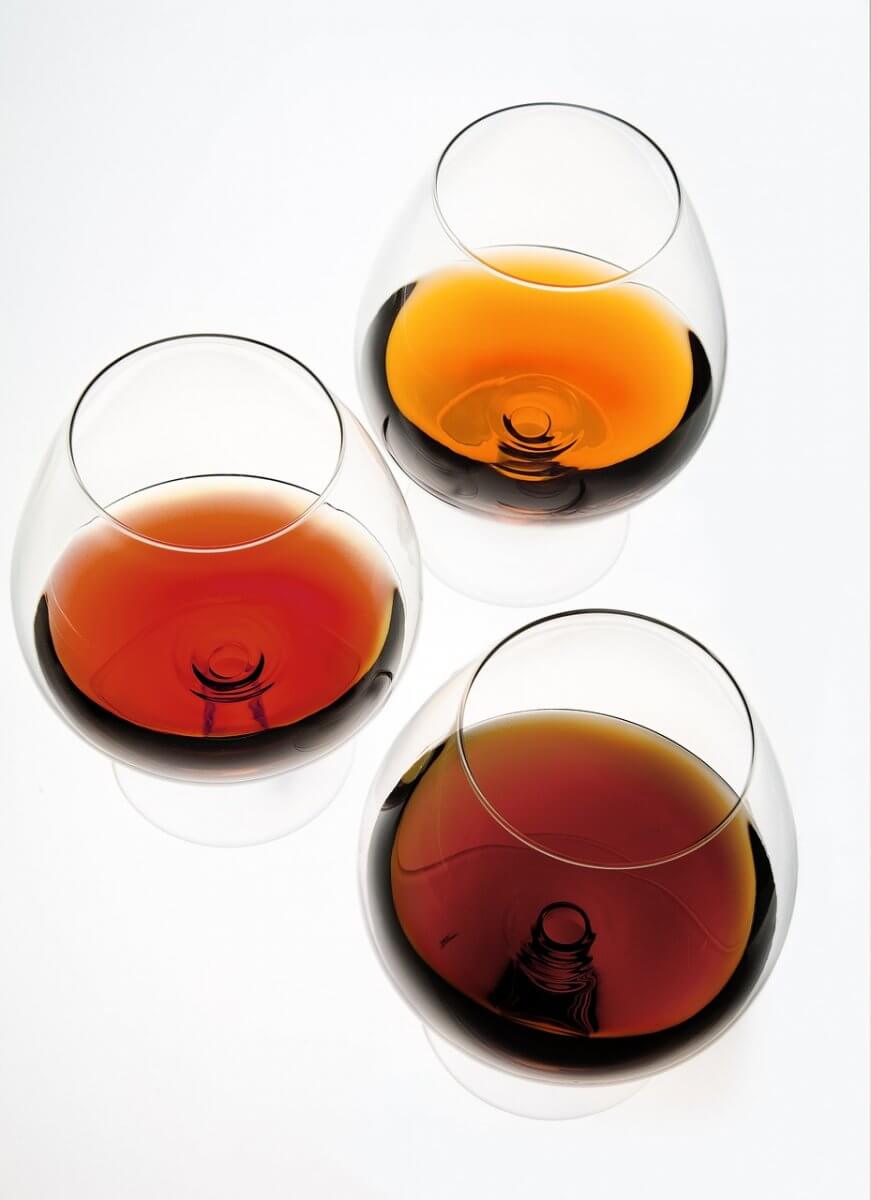
Jagermister
Jägermeister liqueur can be used as a substitute for Benedictine in certain applications, although it will provide a significantly different flavor profile. Jägermeister is a German herbal liqueur known for its bold, complex taste, with notes of herbs, spices, and bitter undertones. While it may not replicate the exact taste of Benedictine, it can add a distinct herbal character to your drinks or recipes. Here are some ways to use Jägermeister as a substitute:
- You can use Jägermeister as a replacement for Benedictine in cocktails that benefit from its herbal and bitter elements. It pairs well with citrus flavors and can add a unique twist to classic cocktails like the Vieux Carré or other whiskey-based drinks.
- Jägermeister is also often enjoyed as a chilled shot or mixed with other beverages like energy drinks or cola. It has a strong and distinctive flavor that can be an acquired taste for some.
- While not as common as other liqueurs, you can use Jägermeister in cooking or baking to add an herbal and slightly bitter element to certain recipes. Incorporate it into marinades, sauces, or glazes for meats or use it in desserts that can benefit from its unique flavor profile.
When substituting Jägermeister for Benedictine, it’s important to note that the resulting taste will be different due to the distinct flavors of Jägermeister. Adjust the quantities accordingly and taste as you go to achieve the desired balance in your recipes or cocktails. As always, remember to consume Jägermeister responsibly and in moderation, as it is an alcoholic beverage.

Drambuie as a substitute for Benedictine liqueur
Drambuie liqueur can also be used as a substitute for Benedictine in certain applications. It is a Scottish liqueur known for its sweet, herbal, and slightly spicy flavor. While it has its own unique taste, it can provide a similar profile to Benedictine in some recipes and cocktails. Here’s how you can use Drambuie as a substitute:
- You can use Drambuie as a replacement for Benedictine in cocktails that require a sweet and herbal liqueur. Why not try experimenting by using Drambuie in cocktails like the Vieux Carré or Widow’s Kiss, adjusting the proportions to suit your taste preferences.
- Enjoy Drambuie neat or over ice to experience its flavors in a simple and straightforward manner. It can also be savored as a digestif or enjoyed as a standalone spirit.
- Similar to Benedictine, you can pair Drambuie with desserts. Drizzle it over ice cream, incorporate it into dessert sauces, or use it as a flavoring for cakes and pastries. The sweet and herbal notes of Drambuie can also complement a variety of sweet treats.
- Consider using Drambuie in cooking to add a unique flavor twist to certain dishes. You can also use it in marinades for meats, incorporate it into glazes or sauces, or even add it to certain desserts to enhance their flavors.
While substituting Benedictine with Drambuie, keep in mind that the flavor profile will differ, as Drambuie has its own distinct taste. Adjust the quantities accordingly and taste as you go to achieve the desired flavor balance. Additionally, the specific recipe or cocktail may influence the success of the substitution, so it’s always a good idea to experiment and adjust based on personal preference.

Chartreuse liqueur
Chartreuse liqueur can be an excellent substitute for Benedictine in many applications. It is a herbal liqueur produced by Carthusian monks and is known for its complex and aromatic flavor profile. Here’s how you can use Chartreuse as a substitute for Benedictine:
- You can use Chartreuse as a replacement for Benedictine in cocktails that call for its herbal sweetness. For example, in the Vieux Carré cocktail, you can substitute Benedictine with equal parts of green Chartreuse to maintain the herbal complexity.
- Similar to Benedictine, tou can enjoy Chartreuse neat or over ice. Sip it slowly to savor the herbal flavors and enjoy it as a digestif.
- Just like Benedictine, you can also use Chartreuse to enhance the flavors of desserts. Drizzle a small amount over desserts like ice cream, cakes, or fruit tarts to add a unique herbal twist.
- You can use Chartreuse in cooking to add a burst of herbal flavor to savory dishes. Add it to sauces, marinades, or reductions for meats or incorporate it into glazes for roasted vegetables.
Chartreuse has a distinct flavor profile that combines herbal, floral, and spicy notes. It is available in two variations: green Chartreuse, which is stronger and more assertive, and yellow Chartreuse, which is milder and slightly sweeter. Consider the specific characteristics of Chartreuse when substituting it for Benedictine and adjust the proportions according to your taste preferences and the desired intensity of the herbal flavors.
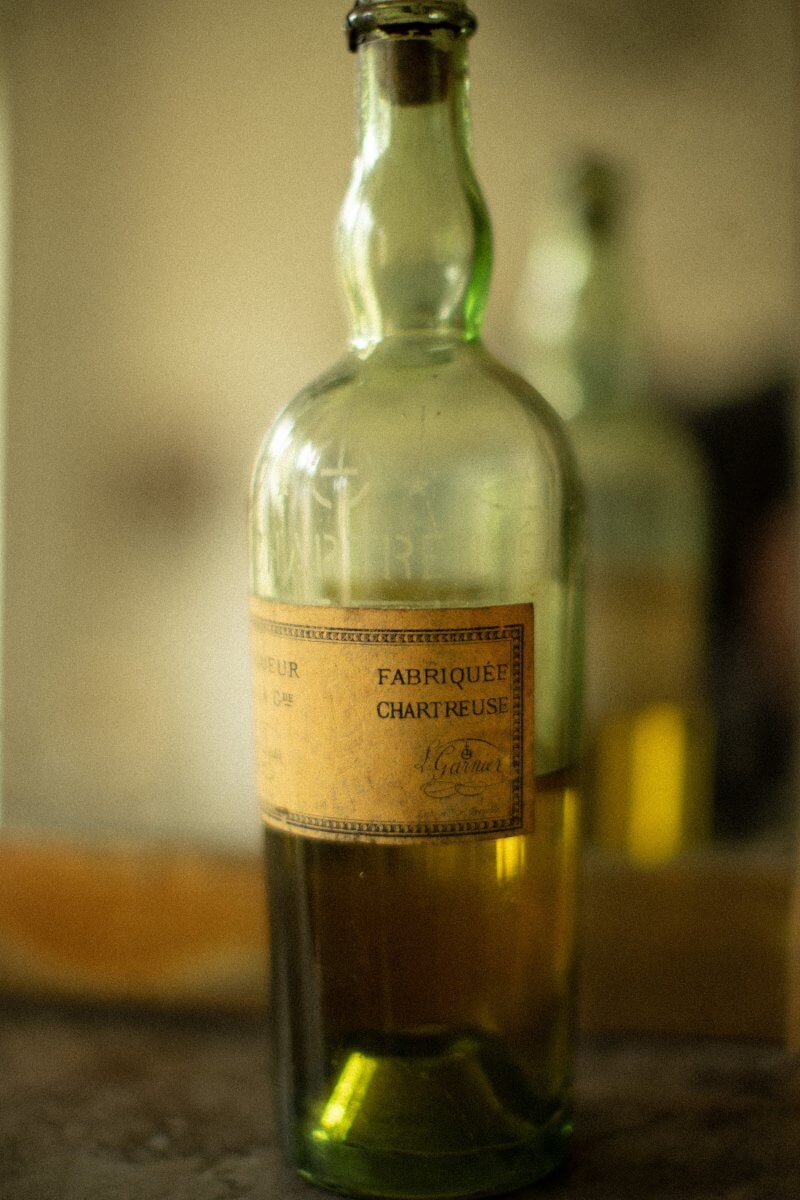
Orange Curaco (Bleu)
Orange Curacao can be a suitable substitute for Benedictine liqueur in certain applications. It is an orange-flavored liqueur with a sweet and citrusy profile. While it won’t replicate the exact flavor of Benedictine, it can add a similar sweetness and orange character to your drinks or recipes. Here are some ways to use Orange Curacao as a substitute:
- You can use Orange Curacao as a replacement for Benedictine in cocktails that benefit from its orange flavor. It also works well in drinks like the Vieux Carré or other cocktails that call for a sweet and citrusy liqueur. Adjust the quantities to maintain the desired balance of flavors.
- Just like Benedictine, you can use Orange Curacao to enhance the flavors of desserts. You can incorporate it into recipes for cakes, pastries, or sauces to add a citrusy twist. It pairs particularly well with chocolate or fruit-based desserts.
- Enjoy Orange Curacao neat or over ice to experience its citrusy and sweet flavors. You can sip it as a standalone spirit or use it as a base for other mixed drinks.
- You can use Orange Curacao in cooking and baking to add a touch of orange flavor to certain recipes. Try using it in marinades, glazes, or sauces for meats or incorporate it into dressings for salads.
When substituting Orange Curacao for Benedictine, keep in mind that the taste will differ, as Orange Curacao lacks the herbal and spicy complexity of Benedictine. And if you choose to use Curaco Bleu you will enjoy a touch of blue color in your recipes too!
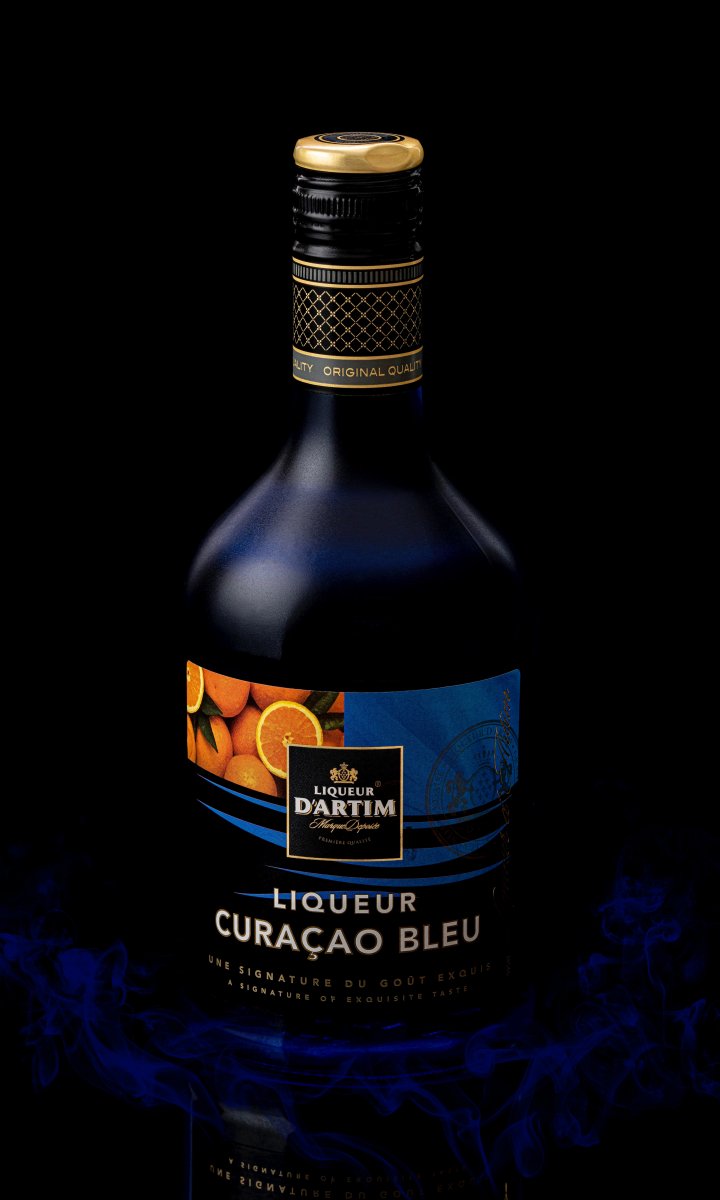
Amaretto as a substitute for Benedictine liqueur
Amaretto can be a suitable substitute for Benedictine liqueur in certain applications, although it will provide a significantly different flavor profile. It is an almond-flavored liqueur with a sweet and nutty taste. While it won’t replicate the herbal and spicy notes of Benedictine, it can add a distinct sweetness and richness to your drinks or recipes. Here are some ways to use Amaretto as a substitute:
- You can use Amaretto as a replacement for Benedictine in cocktails that can benefit from its sweet and nutty profile. It pairs well with a range of spirits, including whiskey, bourbon, and rum. Experiment with using Amaretto in cocktails like the Vieux Carré or other drinks that call for a sweet liqueur.
- Amaretto can be a delightful addition to desserts. You can also used it in recipes for cakes, cookies, or sauces to add a nutty twist. It pairs particularly well with flavors like chocolate, vanilla, and stone fruits.
- Enjoy Amaretto neat or over ice to experience its nutty and sweet flavors. You can also enjoy it as a standalone spirit or use it as a base for other mixed drinks.
- Try adding Amaretto to coffee to give it a unique twist. The sweet and nutty notes of Amaretto can complement the flavors of the coffee and create a delightful combination.
When substituting Amaretto for Benedictine, keep in mind that the resulting taste will be different, as Amaretto lacks the herbal complexity of Benedictine. Adjust the quantities accordingly and consider the specific flavors you want to achieve in your recipes or cocktails.
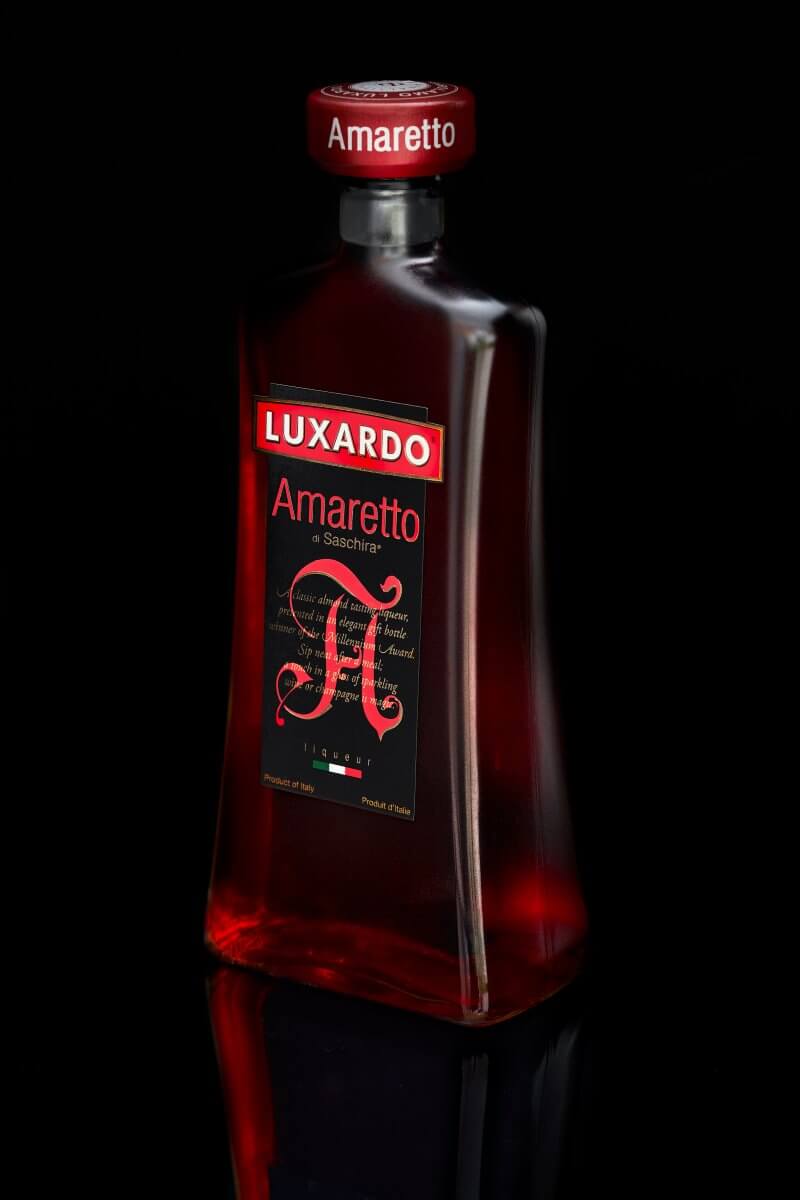
FAQs
What is the flavor of Benedictine?
How can we describe it? Well, Benedictine is a herbal liqueur with a rich and complex flavor profile. It’s made from a secret blend of 27 herbs and spices, which gives it a unique taste. The main flavors in Benedictine include honey, citrus, herbal notes, and warm spices like cloves and cinnamon. There’s also a hint of floral sweetness and a subtle bitterness. Some people say they can detect hints of saffron, vanilla, nutmeg and even a hint of licorice. Overall, Benedictine is known for its smooth and luxurious taste, making it enjoyable on its own as a digestif or as a key ingredient in cocktails such as the Vieux Carré or the Singapore Sling.
Can you drink Benedictine straight?
Yes, you can absolutely drink Benedictine straight! Sipping Benedictine neat allows you to fully taste the rich and intricate flavor profile, with notes of honey, citrus, herbs, and spices. Some people also enjoy it over ice or slightly chilled as this helps mellow out the flavors. It’s a great tasting liqueur that you can savor on its own or use it as a base in cocktails, depending on your preference.
How long does a bottle of Benedictine last?
The shelf life of a bottle of Benedictine can vary depending on you store and handle it. Generally, unopened bottles of Benedictine can last indefinitely if stored in a cool, dark place away from direct sunlight and extreme temperatures. However, once opened, the flavor of Benedictine may begin to degrade over time.
For optimal taste and quality, it’s recommended that you consume an opened bottle of Benedictine within 1 to 2 years. Over time, exposure to oxygen can cause the flavors to fade, and the liqueur may lose some of its complexity. To prolong its shelf life after opening, tightly seal the bottle and store it in a cool, dark place. If you notice any changes in color, aroma, or taste, it may be a sign that the Benedictine has started to deteriorate, and it’s best to discard it.
Ultimately, trust your senses when determining if Benedictine is still good to consume. If it smells and tastes fine, it’s likely still enjoyable, but if it has developed any off-flavors or aromas, it’s best to replace it.
Summary for Benedictine liqueur substitutes
Okay – that’s you all sorted with suitable substitutes for Benedictine liqueur.
In summary, if you’re looking for a substitute for Benedictine liqueur, you have several options:
- Amaretto is a broad category of Italian herbal liqueurs that can provide a similar herbal complexity to Benedictine.
- Chartreuse liqueur, available in green and yellow variations. You can use it as a substitute for Benedictine due to its herbal and complex flavor profile.
- Brandy, a fruit-based spirit. You can use it as a substitute for Benedictine in certain applications, adding a rich and fruity character.
- Orange Curacao, an orange-flavored liqueur, which you can use to provide a sweet and citrusy element in place of Benedictine.
- Amaretto, an almond-flavored liqueur, that you can use as a substitute, adding a sweet and nutty profile to your drinks or recipes.
- Drambuie is a Scottish liqueur known for its sweet, herbal, and slightly spicy flavor. Pair with desserts or pour neat over ice.
Remember that while these substitutes may not replicate the exact taste of Benedictine, they can provide unique and enjoyable flavor profiles. Also, remember to adjust the quantities and proportions according to your preferences and the desired outcome. Enjoy these substitutes responsibly and in moderation.
We have gathered together a lot more facts on ingredients such as herbs, spices, oils, nuts, etc. if you would like to learn some more.
Or if you need to swap out another ingredient have a look at our Substitutes section.
